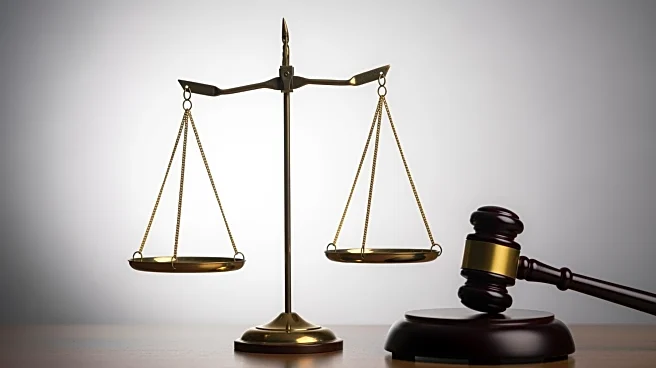What's Happening?
During a Supreme Court hearing on President Donald Trump's tariffs, Justice Neil Gorsuch expressed concerns about the growing power of the presidency. Gorsuch, appointed by Trump, questioned the limits of executive authority, particularly in the context
of the 'major questions' and 'nondelegation' doctrines. He highlighted the risk of a 'one-way ratchet' effect, where power increasingly shifts from Congress to the executive branch. Solicitor General Sauer acknowledged that under the current interpretation, a future president could declare climate change a national emergency and impose tariffs, underscoring Gorsuch's concerns about unchecked executive power.
Why It's Important?
This case is pivotal in defining the boundaries of presidential authority, especially regarding economic measures like tariffs. Gorsuch's concerns reflect a broader debate about the separation of powers and the potential for executive overreach. A ruling that limits presidential power could lead to increased congressional involvement in trade policy, affecting how future administrations address economic and environmental issues. The decision could also set a precedent for how the courts interpret executive authority in other areas.
What's Next?
The Supreme Court's decision, expected by June, could prompt legislative action to clarify the scope of presidential powers under the IEEPA. Depending on the ruling, Congress may seek to assert more control over trade policy. The case could also influence future legal challenges to executive actions, particularly those involving national emergencies and economic measures.
















